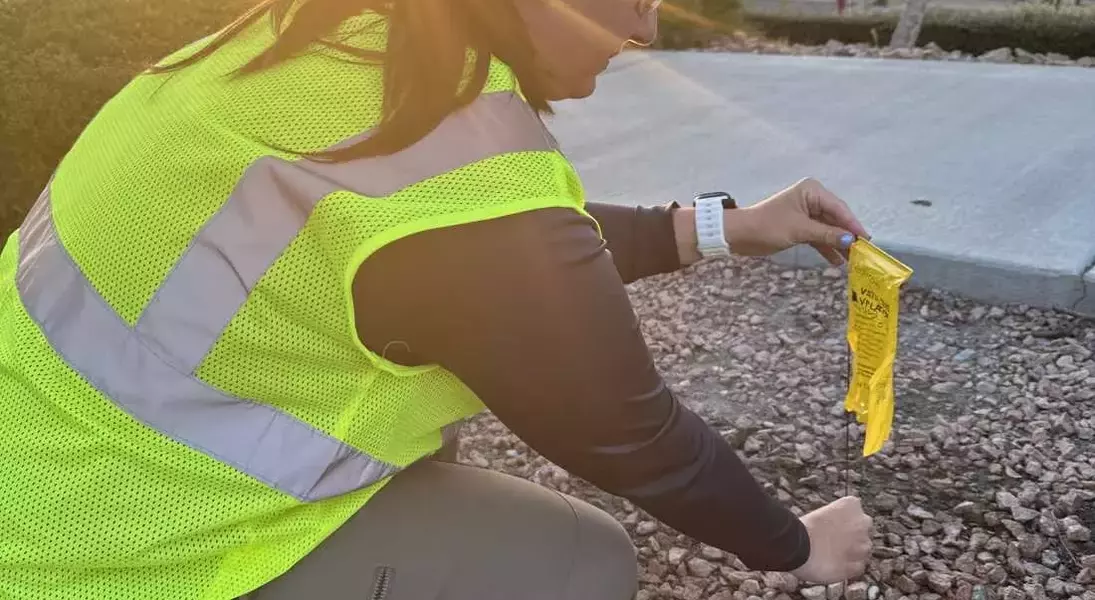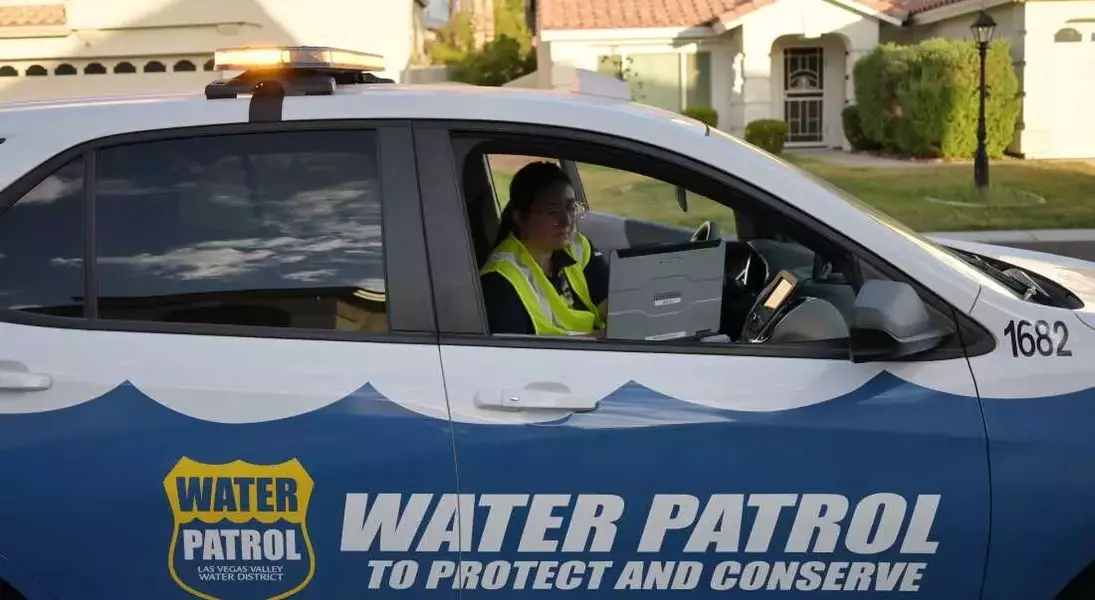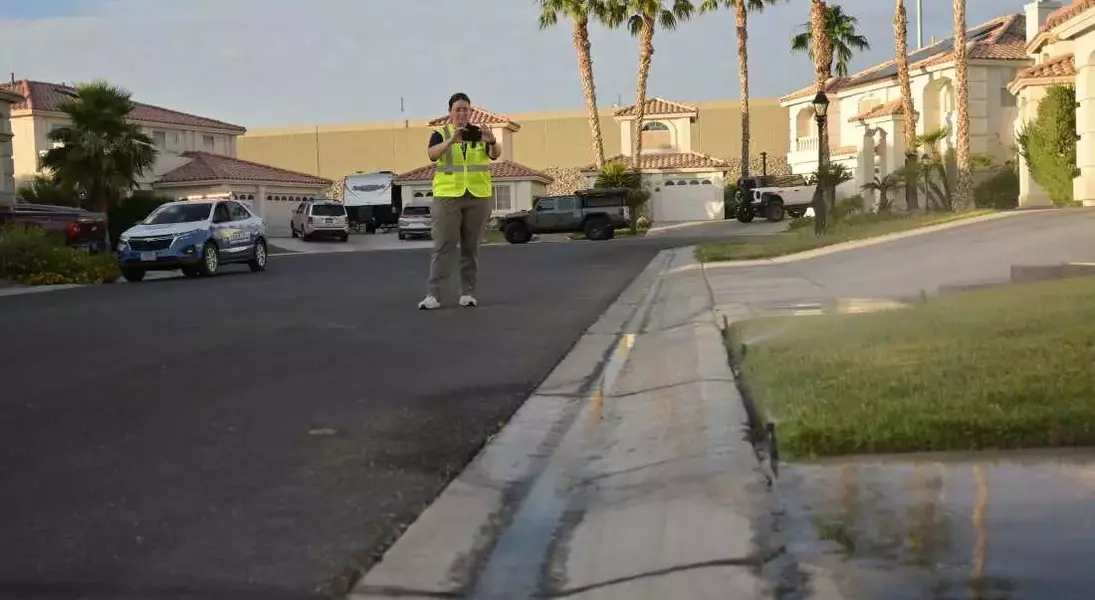




In the arid landscape of Las Vegas, a unique approach to water preservation has taken root: dedicated teams of investigators actively monitor neighborhoods to curb water wastage. This proactive strategy, implemented by the Southern Nevada Water Authority, underscores the city's unwavering commitment to environmental stewardship in the face of ongoing drought conditions. Through meticulous observation and stringent enforcement, these patrols play a crucial role in safeguarding precious water resources, showcasing an innovative model for urban water management.
For over two decades, the Southern Nevada Water Authority (SNWA) has employed a specialized unit of water waste investigators. These individuals are tasked with daily patrols across Las Vegas communities, meticulously searching for instances of water being used inefficiently or excessively. Their mission is critical in a region where water conservation is not merely an environmental concern but a necessity for sustainable growth. The SNWA, a collaborative entity comprising various local water districts in southern Nevada, collectively manages the area's vital water resources, ensuring their longevity.
Devyn Choltko, a dedicated investigator with the Las Vegas Valley Water District, an affiliate of SNWA, exemplifies this commitment. On a routine July morning, she discovered water flowing freely into a street, a common indicator of waste. She meticulously documented the scene, noting 'misaligned sprinklers' and 'over-irrigation causing run-off'—violations that directly contribute to water loss. Incidents like these, particularly 'spray and flow' violations where sprinklers douse sidewalks and streets, are frequently encountered.
Upon identifying a violation, investigators leave a yellow flag at the property, detailing the date, time, and the nature of the infringement. This initial notification serves as a warning, as many residents are unaware of their water wastage, often due to automated irrigation systems operating during off-peak hours. The SNWA's policy allows for multiple notices before imposing fines. Repeat offenders face an escalating penalty system, beginning with an $80 charge that can double with subsequent infractions.
Homeowners, even those who have adopted desert landscaping, can inadvertently contribute to waste through faulty irrigation. Drip systems, ideal for such environments, can become compromised, leading to water spewing uncontrollably. Choltko emphasizes the potential for minor malfunctions to rapidly escalate into significant water loss. The authority proactively engages with homeowners, offering phone consultations and, for low-income households, financial assistance and leak detection services to help rectify issues.
The genesis of these water patrols dates back more than twenty years, coinciding with a severe drought gripping the Colorado River Basin. In response, the SNWA initiated comprehensive conservation efforts, including the establishment of water patrols. Initially, approximately 20% of residents received citations; today, this figure has dramatically decreased to less than 10%, a testament to the program's effectiveness. Bronson Mack, an SNWA spokesperson, highlights that the primary objective is to foster a culture of water conservation through education and behavioral change, encouraging simple yet impactful habits like shorter showers or water reuse.
The financial penalties collected from violations, amounting to between $1 and $1.5 million in recent years, are reinvested into conservation initiatives. These funds support programs like turf removal incentives and rebates for smart irrigation systems. Such efforts are crucial, especially given the "exceptional" drought status in southern Nevada. The visibly receding "bathtub rings" at Lake Mead, a primary water source for Las Vegas and surrounding areas, serve as a stark reminder of the ongoing water crisis. Both Lake Mead and Lake Powell currently operate at significantly reduced capacities, highlighting the urgency of continued conservation.
Beyond enforcement, the SNWA has implemented a spectrum of water-saving measures. These include prohibitions on decorative grass, limitations on pool sizes in new developments, and restrictions on industrial and commercial use of evaporative coolers, which are significant water consumers. Furthermore, the authority champions extensive water recycling, treating and returning over 245,000 acre-feet of water to Lake Mead in 2024 alone. These multifaceted efforts have yielded remarkable results: despite an increase of over 800,000 residents and 40 million visitors since 2002, Las Vegas has managed to reduce its Colorado River water consumption by more than 30% over the past two decades. This success positions Las Vegas as a leader in urban water conservation, inspiring other drought-affected cities like Phoenix, San Antonio, San Diego, and Miami-Dade to adopt similar strategies. The Alliance for Water Efficiency underscores the necessity of such adaptive measures in the face of climate change, emphasizing that "forward-thinking solutions" will be paramount to ensuring a reliable and affordable water supply for future generations. Devyn Choltko, reflecting on her six years in the field, finds profound satisfaction in contributing to her community's enduring vitality, believing her work will ensure the region remains a desirable place to live for decades to come.
